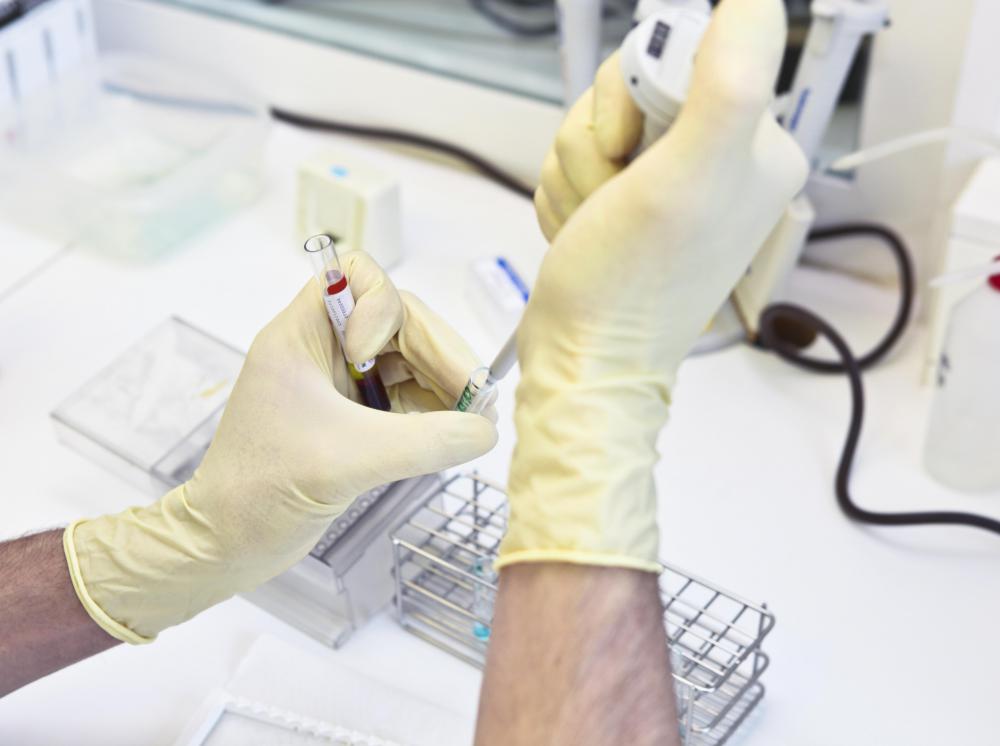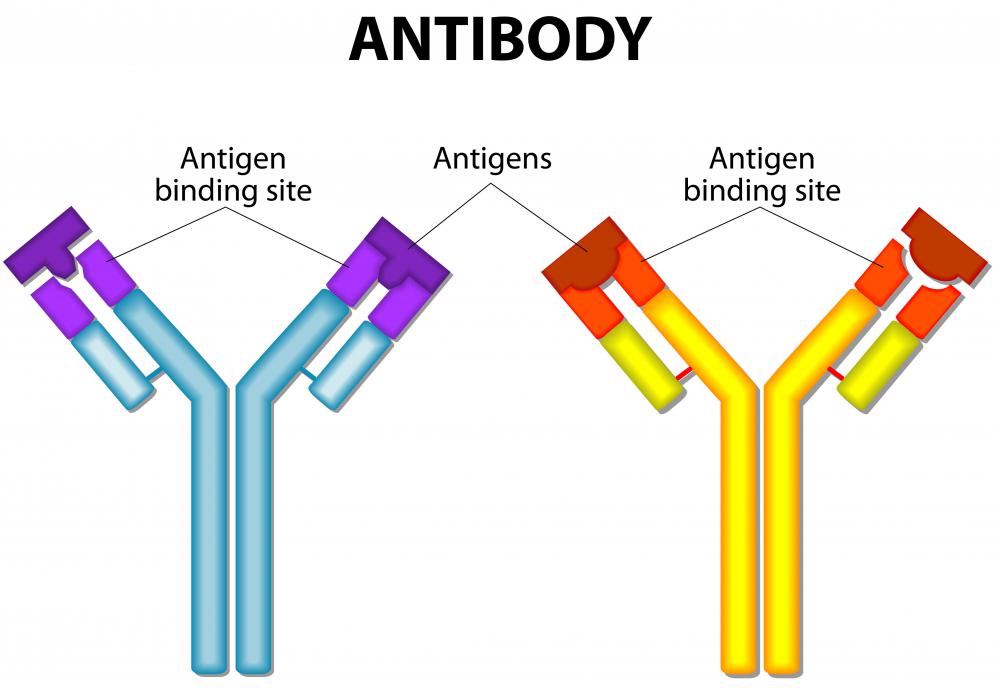At TheHealthBoard, we're committed to delivering accurate, trustworthy information. Our expert-authored content is rigorously fact-checked and sourced from credible authorities. Discover how we uphold the highest standards in providing you with reliable knowledge.
What is Immunohistochemistry?
Immunohistochemistry (IHC) is a technique which can be used to identify specific types of cells within a given sample. This procedure can be utilized for a wide variety of purposes, ranging from pure research in which people want to learn more about the distribution of certain cell types to examinations of cancerous tumors to determine the source and stage of the cancer. In order to perform immunohistochemistry, it is necessary to have access to a laboratory along with a number of specialized products which will be used to prepare and test the sample.
When someone does an immunohistochemistry study, he or she introduces specialized antibodies to a sample of the tissue in question, which is usually prepared and fixed on a slide, although free floating samples may be analyzed as well. The antibodies search for specific antigens in the sample, and if they find an antigen that matches, they will lock on. Next, the sample is washed to remove excess antibodies, leaving behind the ones which found cells to bind to.

At this stage, the researcher or pathologist takes advantage of the special labels which have been added to the antibodies. These labels classically take the form of enzymes which will fluoresce when the sample is exposed to light of a certain wavelength, although it is also possible to use the antibodies like a stain to highlight specific tissue types. By seeing which antibodies stuck to the sample, it is possible to determine which kinds of cells are present, and to create a detailed image of the cell types in the sample.

When a pathologist examines a specimen from a cancerous tumor, immunohistochemistry is very important. Using this technique, the pathologist can find out where in the body the cancer originated, by looking for cells which don't belong in the sample. For example, breast cells in a liver would indicate that the tumor was actually breast cancer which had metastasized to the liver. The antibodies can also be used to identify malignancy, which can help the pathologist determine the stage of the cancer.

While immunohistochemistry is detailed, serious, and finicky business, the results can be oddly visually appealing, with bright blotches and streaks of color on the sample slide indicating the presence of different types of cells. Especially in cases where the antibodies have been tagged with enzymes which respond to light with fluorescence, the slide can be quite vivid and colorful, even when it contains sobering news.
AS FEATURED ON:
AS FEATURED ON:















Discussion Comments
@Azuza - When I took science, my favorite slides were the ones that were stained. I can only imagine how cool the slides from immunohistochemistry look.
I always think it's cool when scientists are able to take advantage of natural processes to study cells. Here they've taken advantage of the properties of antibodies and antigens in order to find out information about cells.
I always wondered how doctors determined what kind of cancer a person had when it had already spread through several areas of the body. It makes sense that doctors use immunohistochemistry to figure out what kind of cells are in the tumor. Obviously breast cells shouldn't be in the liver, as the article pointed out!
I'm also not surprised that this process ends up with visually appealing results. I saw a lot of pictures of cells when I took science classes in college, and they looked really neat a lot of the time.
Post your comments